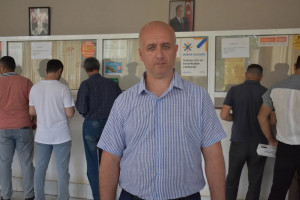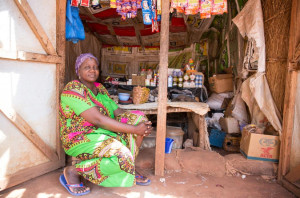International Day of Family Remittances
Related Sustainable Development Goals and Global Compact for Migration Objectives
The 2023 International Day of Family Remittances focuses on digital and financial inclusion and the benefits they can bring when linked to remittances.
The Director General of the IOM gave a statement about the importance of remittances both to migrant families directly as well as achieving the Sustainable Development Goals and the 2030 Agenda. He also spoke on how digitization can further improve the development impact of remittances.
As part of the day, IOM shared several stories of remittance families who benefit from access for sending and receiving funds:

Photo: IOM 2022
In Tunisia, Rawya was part of the project “Migration as a Resource: Mobilizing the Tunisian Diaspora and Stabilizing Disadvantaged Communities in Tunisia (Mobi-TRE),”. She gained financial support from the Tunisian diaspora and was able to receive training and resources to open her own pastry shop.

IOM 2023/Ilgar Khudiyev
In Azerbaijan, Rahib has been receiving remittances from relatives from the post office for 15 years. He uses the remittances to cover expenses for family emergencies.

IOM/Amanda Nero
In Chad, remittances empower women-led households:
"Female-headed households receive on average more money from the diaspora than male-headed households. They also receive them more frequently. Furthermore, in female-headed households, women receiving remittances have more decision-making power over how the funds will be used, than in male-headed households where the use of the remittances is likely to be decided by the sender."
Remittances have transformative potential and can make a big difference to both the lived experience of communities as well as for the Sustainable Development Goals.
